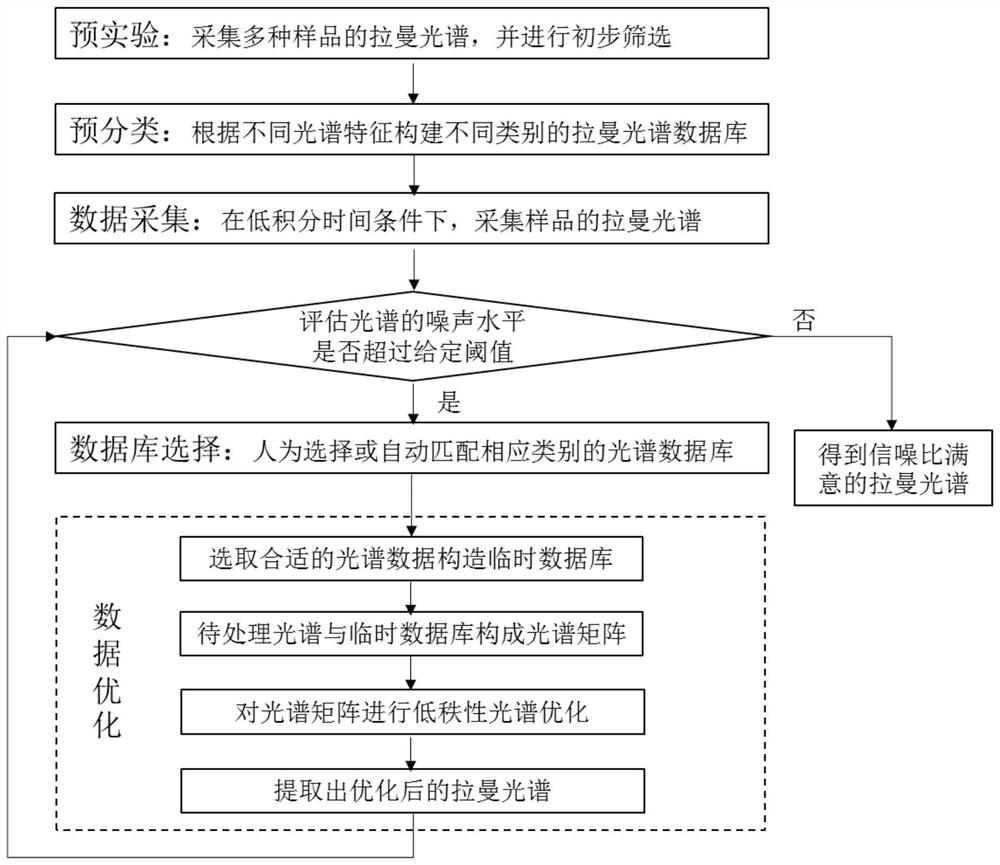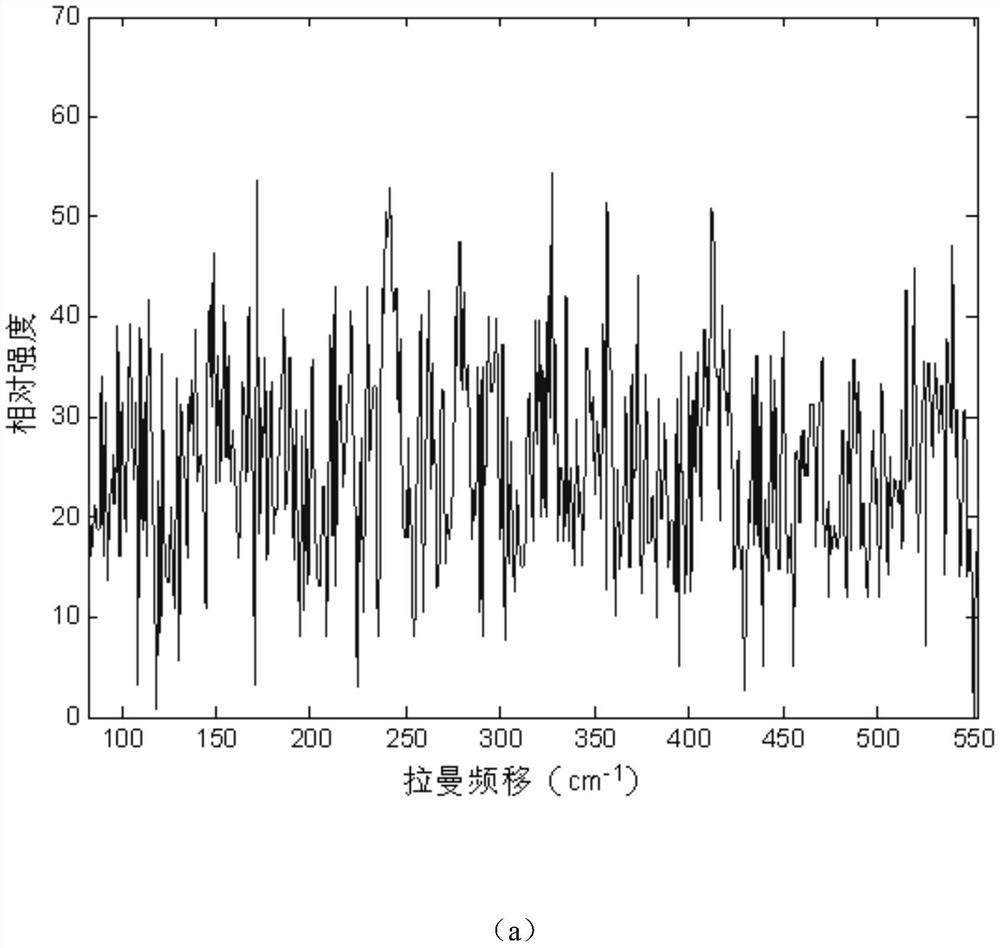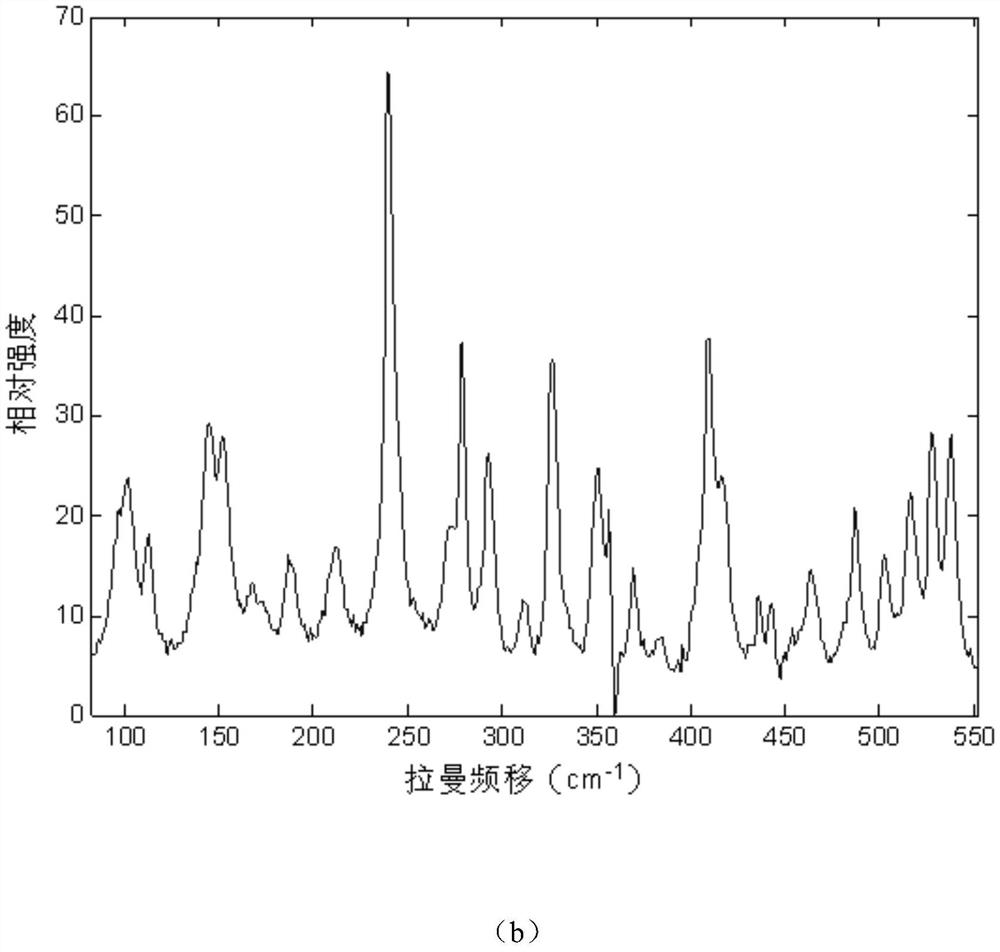A Database-Based Raman Spectroscopy Preprocessing Method
A Raman spectrum and database technology, applied in the field of Raman spectrum preprocessing, can solve problems such as loss of high-frequency signal data, sensitive parameter setting of wavelet transform method, and failure to remove fluorescence background interference, etc., to improve signal-to-noise ratio and improve prediction Effects of processing accuracy and shortening acquisition time
- Summary
- Abstract
- Description
- Claims
- Application Information
AI Technical Summary
Problems solved by technology
Method used
Image
Examples
Embodiment 1
[0029] A database-based Raman spectrum preprocessing method, including: the steps of pre-experiment, pre-classification, data acquisition, noise evaluation, database selection and data optimization, see figure 1 , the Raman spectrum preprocessing method comprises the following steps:
[0030] 101: collect Raman spectra of various samples, and construct a Raman spectral database. The spectral matrix formed by the Raman spectral data contained in this database has low rank;
[0031] 102: Under the conditions of a preset integration time (set according to the needs of practical applications, which is not limited in the embodiment of the present invention), collect the original spectrum of the sample with the same composition;
[0032] Among them, since the integration time is too short, the signal-to-noise ratio of the collected Raman spectrum will be greatly reduced, so it can be used as the original spectrum to be processed.
[0033] 103: When the noise of the original spectru...
Embodiment 2
[0038] The embodiment of the present invention proposes a database-based Raman spectrum preprocessing method. Aiming at the limitations of traditional Raman spectrum preprocessing methods, a database-based low-rank spectrum optimization algorithm is proposed, which can greatly improve the signal quality of Raman spectrum. noise ratio, and can effectively shorten the acquisition time of Raman spectral data, combined with the attached figure 1 , detailed as follows:
[0039] 201: Collect Raman spectra of samples composed of limited kinds of mixed substances, screen them, classify them according to different spectral features, and construct different types of Raman spectral databases;
[0040] Among them, the spectral matrix formed by the Raman spectral data contained in this database has low rank.
[0041] 202: Under the short integration time condition, collect the Raman spectrum of the sample with the same composition as the original spectrum to be processed;
[0042] Since ...
Embodiment 3
[0061] Combined with the specific experimental data, figure 2 The scheme in embodiment 1 is further introduced, see the following description for details:
[0062] figure 2 Shown are the Raman spectra before and after pretreatment. The sample detected in the experiment is a mixture of three different substances. (a) and (b) are the original Raman spectra collected from the same sample, and the integration time is 0.01s and 10s, respectively. (c) is the Raman spectrum obtained after (a) is processed by this method, and its spectral characteristics are basically consistent with (b), the signal-to-noise ratio of spectrum (a) is 1.26, and the signal-to-noise ratio of spectrum (c) is 187.41 , the signal-to-noise ratio is increased by 148.79 times.
[0063] It can be seen from the results that this method can increase the signal-to-noise ratio of Raman spectroscopy by nearly 150 times, thereby reducing the requirements of Raman spectroscopy detection technology for the quality o...
PUM
 Login to View More
Login to View More Abstract
Description
Claims
Application Information
 Login to View More
Login to View More - R&D
- Intellectual Property
- Life Sciences
- Materials
- Tech Scout
- Unparalleled Data Quality
- Higher Quality Content
- 60% Fewer Hallucinations
Browse by: Latest US Patents, China's latest patents, Technical Efficacy Thesaurus, Application Domain, Technology Topic, Popular Technical Reports.
© 2025 PatSnap. All rights reserved.Legal|Privacy policy|Modern Slavery Act Transparency Statement|Sitemap|About US| Contact US: help@patsnap.com



